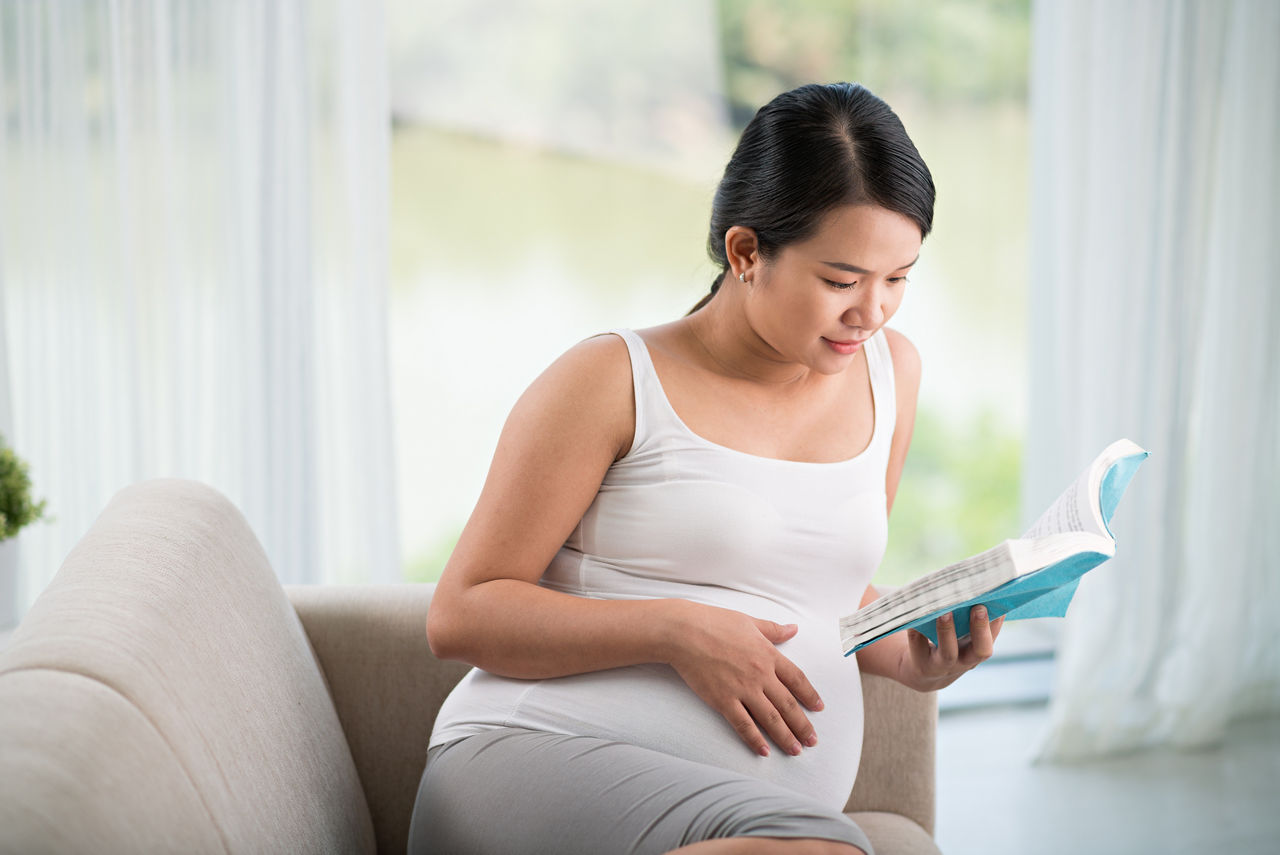Breastmilk is the best for babies. The World Health Organisation recommends exclusive breastfeeding for the first six months of life. Unnecessary introduction of bottle feeding or other food and drinks will have a negative impact on breastfeeding. After six months of age, infants should receive age-appropriate foods while breastfeeding continues for up to two years of age or beyond. Consult your doctor before deciding to use infant formula or if you have difficulty breastfeeding.
- Week 1
- Week 2
- Week 3
- Week 4
- Week 5
- Week 6
- Week 7
- Week 8
- Week 9
- Week 10
- Week 11
- Week 12
- Week 13
- Week 14
- Week 15
- Week 16
- Week 17
- Week 18
- Week 19
- Week 20
- Week 21
- Week 22
- Week 23
- Week 24
- Week 25
- Week 26
- Week 27
- Week 28
- Week 29
- Week 30
- Week 31
- Week 32
- Week 33
- Week 34
- Week 35
- Week 36
- Week 37
- Week 38
- Week 39
- Week 40
Week 30 of Your Pregnancy
Feeling fat lasts nine months but the joy of becoming a mom lasts forever! At week 30, you must be feeling overwhelmed, yet comforted by your baby’s quickening growth. This week, tiny toenails will be appearing and your baby’s nerve fibres will be growing rapidly!
In week 30 of your pregnancy, your baby is looking more proportionate! It measures around 27cm and weighs somewhere in the region of 1.3kg. As its brain and lungs continue to mature, tiny toenails will begin to grow1.
Do you remember the fine layer of hair around your baby? Well, this layer of lanugo will now start to disappear2. This is a sign that your baby has enough fat under its skin to keep it warm! In the coming weeks, many babies will start settling into a head-down position1 to prepare for their journey into the outside world. Don’t worry if your baby hasn’t turned yet – there’s still plenty of time.
Plan a Babymoon
Before your baby enters your world, how about a last hurrah? Whether it’s a weekend of pampering or a romantic getaway, plan a relaxing babymoon for you and partner to enjoy the final weeks of coupledom! In case you are wondering, experts generally agree that you shouldn’t travel beyond 34 or 36 weeks. (Parents) Before you pack your bags though, we bring you some helpful tips: (SmartParents)
- Ask your doctor if you are medically fit to travel
- Some airlines require that you produce a medical certificate indicating that you’re fit to travel
- Some cruise lines do not accept passengers past their second trimesters
- Ensure you are covered by travel insurance
- Pick short-haul flights (less than 6 hours)
- Some vaccines are not safe during pregnancy, so check on the medical risks of your dream destination
Keep Thinking About Iron
Since iron is a key nutrient throughout pregnancy, here are some meal-planning tips. Good sources of iron include meat, oily fish and eggs, but you can also get iron from plant-based sources such as
- bread
- iron-fortified breakfast cereals
- dark green, leafy vegetables like watercress, curly kale and broccoli
- dried fruit such as figs and apricots
- pulses3
It is also worth remembering that some foods (such as calcium) inhibit iron uptake while others (such as Vitamin C) improve it. Hence, instead of coffee and tea, drink a glass of citrus fruit juice or eat a piece of fruit at mealtimes4 to support iron uptake!
Most of us will be able to get enough iron from our diet alone. If your iron levels become too low, talk to your doctor about taking a supplement5.
What’s Next?
Be sure to include plenty of different iron-rich foods in your diet!3
- Lean meat and oily fish such as sardines
- Dark green vegetables like broccoli, watercress and ale
- Nuts, especially cashew nuts
- Pulses, chickpeas, beans and lentils
- Wholegrains, including wholemeal bread, and iron-fortified breakfast cereals
- Dried fruit like apricots, prunes and raisins
- Eggs
¹ Deans A. Your New Pregnancy Bible, The experts’ guide to pregnancy and early parenthood. 4th ed. London: Carroll & Brown Publishers Limited, 2013. p.45.
² NHS UK. You and your baby at 29-32 weeks pregnant [Online]. 2015.
Available at: www.nhs.uk/Conditions/pregnancy-and-baby/pages/pregnancy-weeks-29-30-31-32.aspx [Accessed August 2016].
³ Gandy J (Ed). Manual of Dietetic Practice, 5th Edition. Wiley Blackwell. UK. 2014 p.927. ⁴ Zijp IM, Korver O, Tijburg LB. Effect of tea and other dietary factors on iron absorption. Crit Rev Food Sci Nutr 2000;40(5):371-98.
⁵ NHS UK. Vitamins, supplements and nutrition in pregnancy [Online]. 2015. Available at: www.nhs.uk/Conditions/pregnancy-and-baby/pages/vitamins-minerals-supplements-pregnant.aspx [Accessed August 2016].

Connect with our team of experts
We provide advice and support for you on your parenthood journey



